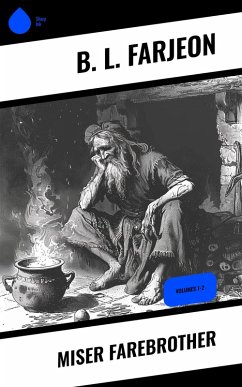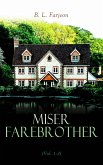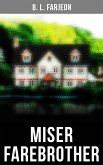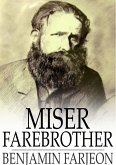In "Miser Farebrother," B. L. Farjeon weaves a captivating narrative set within the realm of Victorian England, exploring themes of miserliness, social stratification, and the complexities of human relationships. Farjeon's prose is marked by its vivid characterizations and sharp social commentary, often employing a blend of humor and pathos that engages the reader in the moral dilemmas faced by the protagonist, Farebrother. As the narrative unfolds, it becomes a poignant critique of the era's capitalist ethos and the isolation that avarice engenders, reflecting a keen understanding of the socio-economic conditions of his time. B. L. Farjeon, an accomplished novelist and playwright, was deeply influenced by his own experiences with poverty and social inequality. Raised in a family of literary figures, he was acutely aware of the struggles of the less fortunate, which fueled his desire to shine a light on the contradictions of wealth and poverty in society. Farjeon's personal encounters with the working-class struggles and his fascination with the human condition undoubtedly informed the creation of "Miser Farebrother," making it not just a tale of one man's greed but a commentary on societal values. For readers drawn to intricate character studies and social critique, "Miser Farebrother" offers a rich, multi-layered exploration of the human spirit. Farjeon's deft narrative skill and empathetic portrayal of flawed individuals will resonate with fans of literary fiction who appreciate the intricate dance between morality and desire. This novel serves not only as an engaging read but also as a reflective mirror on our contemporary values.
Dieser Download kann aus rechtlichen Gründen nur mit Rechnungsadresse in A, B, BG, CY, CZ, D, DK, EW, E, FIN, F, GR, HR, H, IRL, I, LT, L, LR, M, NL, PL, P, R, S, SLO, SK ausgeliefert werden.









